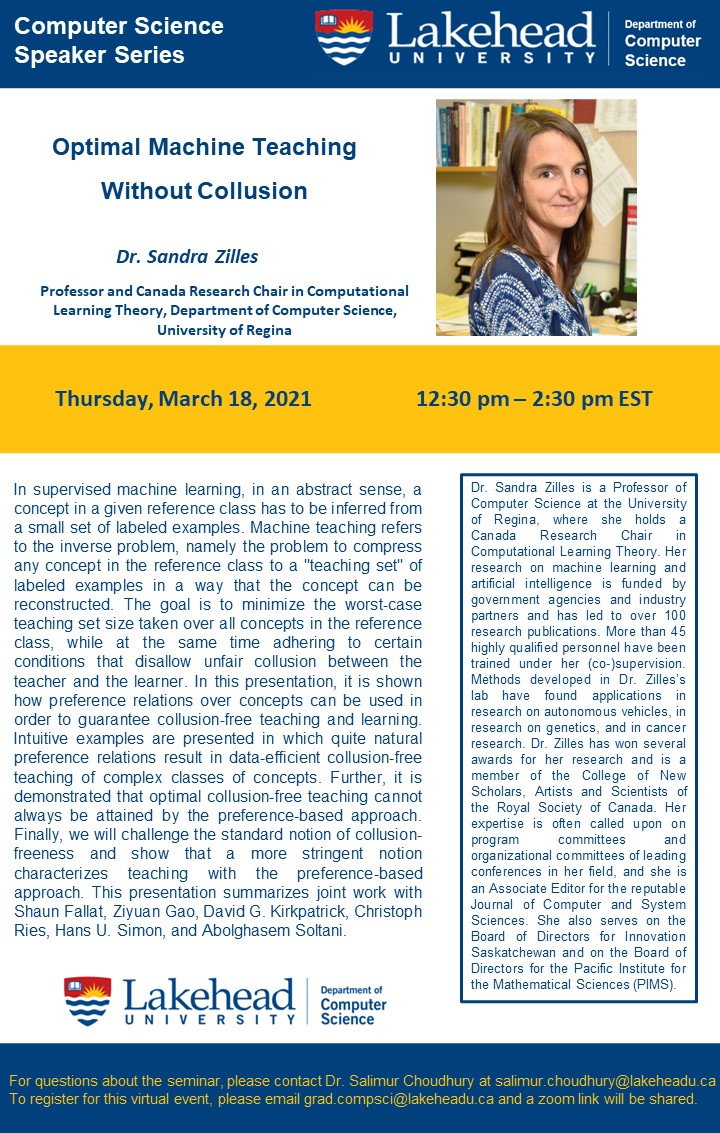Computer Science Guest Speaker Series: Optimal Machine Teaching Without Collusion

THE DEPARTMENT OF COMPUTER SCIENCE GRADUATE SEMINAR 2021
Guest Speaker Series Presented By:
Dr. Sandra Zilles
"Optimal Machine Teaching Without Collusion"
Thursday, March 18, 2021
12:30 pm
Abstract:
In supervised machine learning, in an abstract sense, a concept in a given reference class has to be inferred from a small set of labeled examples. Machine teaching refers to the inverse problem, namely the problem to compress any concept in the reference class to a "teaching set" of labeled examples in a way that the concept can be reconstructed.
The goal is to minimize the worst-case teaching set size taken over all concepts in the reference class, while at the same time adhering to certain conditions that disallow unfair collusion between the teacher and the learner. In this presentation, it is shown how preference relations over concepts can be used in order to guarantee collusion-free teaching and learning. Intuitive examples are presented in which quite natural preference relations result in data-efficient collusion-free teaching of complex classes of concepts.
Further, it is demonstrated that optimal collusion-free teaching cannot always be attained by the preference-based approach. Finally, we will challenge the standard notion of collusion-freeness and show that a more stringent notion characterizes teaching with the preference-based approach. This presentation summarizes joint work with Shaun Fallat, Ziyuan Gao, David G. Kirkpatrick, Christoph Ries, Hans U. Simon, and Abolghasem Soltani.
Dr. Sandra Zilles is a Professor of Computer Science at the University of Regina, where she holds a Canada Research Chair in Computational Learning Theory. Her research on machine learning and artificial intelligence is funded by government agencies and industry partners and has led to over 100 research publications.
More than 45 highly qualified personnel have been trained under her (co-)supervision. Methods developed in Dr. Zilles’s lab have found applications in research on autonomous vehicles, in research on genetics, and in cancer research. Dr. Zilles has won several awards for her research and is a member of the College of New Scholars, Artists and Scientists of the Royal Society of Canada.
Her expertise is often called upon on program committees and organizational committees of leading conferences in her field, and she is an Associate Editor for the reputable Journal of Computer and System Sciences. She also serves on the Board of Directors for Innovation Saskatchewan and on the Board of Directors for the Pacific Institute for the Mathematical Sciences (PIMS).
To register for this virtual event, please email grad.compsci@lakeheadu.ca and a Zoom link will be shared.
Everyone is welcome.

